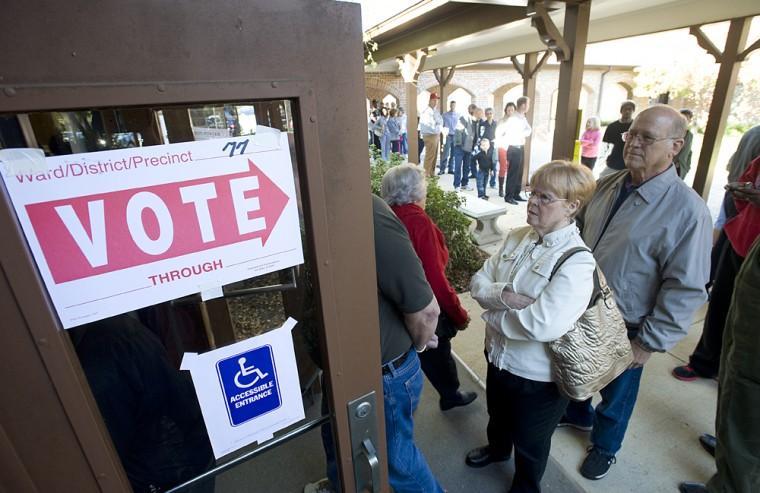Election day has come and gone, and many important questions have been left unanswered. Which candidate will fix the deficit in the sleep budget? Does Barack Obama hang his toilet paper over or under? Would Mitt Romney’s America see a rise in combination Pizza Hut and Taco Bells?
Inquiring minds will have to let these curiosities go and move on to the next big mystery: Where do our votes go after we’ve cast our ballots?
In short, they go to the Electoral College. The long answer depends on where you live and how you vote.
If you’re in your state’s majority, it’s smooth sailing. If you’re in your state’s minority, however, some might liken your vote’s post-election journey to a nonsensical ride through the pipes of a Dr. Seussian machine, whereby they are deposited in It-Doesn’t-Matter-Who-You-Voted-For-Ville.
This is due to the Electoral College’s controversial nature. Each state is allotted a certain number of electoral votes determined by the number of members in the Senate and House of Representatives.
For better or worse, a winner-take-all approach is applied here and whichever presidential candidate wins the majority of the state’s popular vote almost absolutely receives all of the electoral votes.
Hypothetically, the Republican Party could edge out the Democrats by only 19 or 15 percent in a state’s popular vote, granting the entirety of the electoral votes to the Republican candidate despite strong opposition.
Now remove “hypothetically” from the above statement and you’ve got the events of the presidential elections in Louisiana in 2008 and 2004, respectively. Realities like this have not been lost on history freshman Brent Chapuis.
“I would vote for Barack,” he said, “but I know this state is going to go to the Republican candidate. I’d have to go all the way to New Orleans to vote, so it’d be a waste of my time.”
Even if Chapuis had voted, he’d have faced some stark truths. Despite the insistence of countless campaigns launched to convince citizens their votes matter, the current system ensures that if your vote is cast for a party not favored in your state, like Democrats in Louisiana or Republicans in California, it is essentially moot.
As a result, a candidate can win by maintaining a slight lead in several states, regardless of whether that lead represents more overall votes. This has occurred several times, including George W. Bush’s win in 2000.
Likewise, third party candidates are mostly excluded since electoral votes are only awarded to candidates who win the majority of a state. Their support is generally small and widespread rather than strongly concentrated in any one place. As a result, a third party vote can be considered symbolic rather than significant since it will likely receive few electoral votes.
As for creating a more cohesive nation, the Electoral College succeeds. It prevents a form of regionalism by inhibiting densely populated cities from overriding the votes of less populated rural areas. It also coerces candidates to seek widespread approval, rather than only in those highly peopled regions.
Unfortunately, there is a cost. While I recognize the philosophical reward of guaranteeing those rural outliers are represented, over-representing them because of where they live is another form of bias.
The Electoral College is an attempt at fairness, but falls short in practice. It asks us to sacrifice our ideals of equality among individuals to allow equality among regions, no matter how distant or populous. For many, it’s worthwhile. For others, like those involved in the more than 700 proposals to reform or remove it, it is not. For me, I’ll only be disappointed to see my vote go to the land of broken dreams, populated by prom queen runner-ups, failed athletes and people who have eaten a KFC Double Down.





